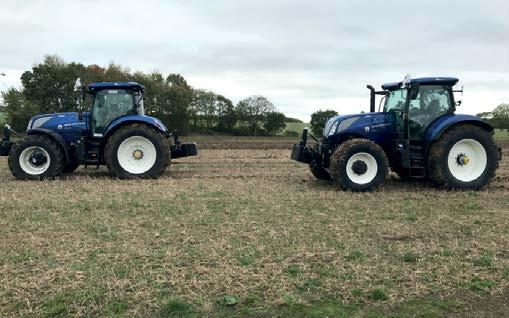WHAT DO YOU READ? If you are like us, then you don’t know where to start when it comes to other reading apart from farming magazines. However, there is so much information out there that can help us understand our businesses, farm better and understand the position of non-farmers. We have listed a few more books you might find interesting, challenge the way you currently think and help you farm better.
Grass-Fed Nation: Getting Back the Food We Deserve Modern agriculture has locked us into an unhealthy, vicious circle, with degraded foods pouring from an overstretched, impoverished landscape. There's a simple remedy: the grassfed movement. We can make sure that the meat, dairy foods and eggs we buy come from animals grazing on or running in pasture, as they always used to. This will also put life back into our soils and wildlife back onto our farmland. Graham Harvey, former agricultural advisor to BBC Radio 4's The Archers, lays out all the arguments for grass-fed food - why it's good for us, and why it's good for the planet.
Mycorrhizal Planet: How Symbiotic Fungi Work with Roots to Support Plant Health and Build Soil Fertility Mycorrhizal fungi have been waiting a long time for people to recognize just how important they are to the making of dynamic soils. These microscopic DIRECT DRILLER MAGAZINE
organisms partner with the root systems of approximately 95 percent of the plants on Earth, and they sequester carbon in much more meaningful ways than human "carbon offsets" will ever achieve. Pick up a handful of old-growth forest soil and you are holding 26 miles of threadlike fungal mycelia, if it could be stretched it out in a straight line. Most of these soil fungi are mycorrhizal, supporting plant health in elegant and sophisticated ways. The boost to green immune function in plants and community-wide networking turns out to be the true basis of ecosystem resiliency. A profound intelligence exists in the underground nutrient exchange between fungi and plant roots, which in turn determines the nutrient density of the foods we grow and eat.
Building soil structure and fertility that lasts for ages results only once we comprehend the nondisturbance principle. As the author says, "What a grower understands, a grower will do." Mycorrhizal Planet abounds with insights into "fungal consciousness" and offers practical, regenerative techniques that are pertinent to gardeners, landscapers, orchardists, foresters, and farmers. Michael's fungal acumen will resonate with everyone who is fascinated with the unseen workings of nature and concerned about maintaining and restoring the health of our soils, our climate, and the quality of life on Earth for generations to come.
Exploring the science of symbiotic fungi in layman's terms, holistic farmer Michael Phillips (author of The Holistic Orchard and The Apple Grower) sets the stage for practical applications across the landscape. The real impetus behind no-till farming, gardening with mulches, cover cropping, digging with broadforks, shallow cultivation, forestedge orcharding, and everything related to permaculture is to help the plants and fungi to prosper . . . which means we prosper as well.
Fundamentals of Soil Ecology Fundamentals of Soil Ecology, 3rd Edition, offers a holistic approach to soil biology and ecosystem function, providing students and ecosystem researchers with a greater understanding of the central roles that soils play in ecosystem development and function. The text emphasizes the increasing importance of soils as the organizing center for all terrestrial ecosystems and provides an overview of theory and practice in soil ecology, both from an ecosystem and www.directdriller.co.uk 97























